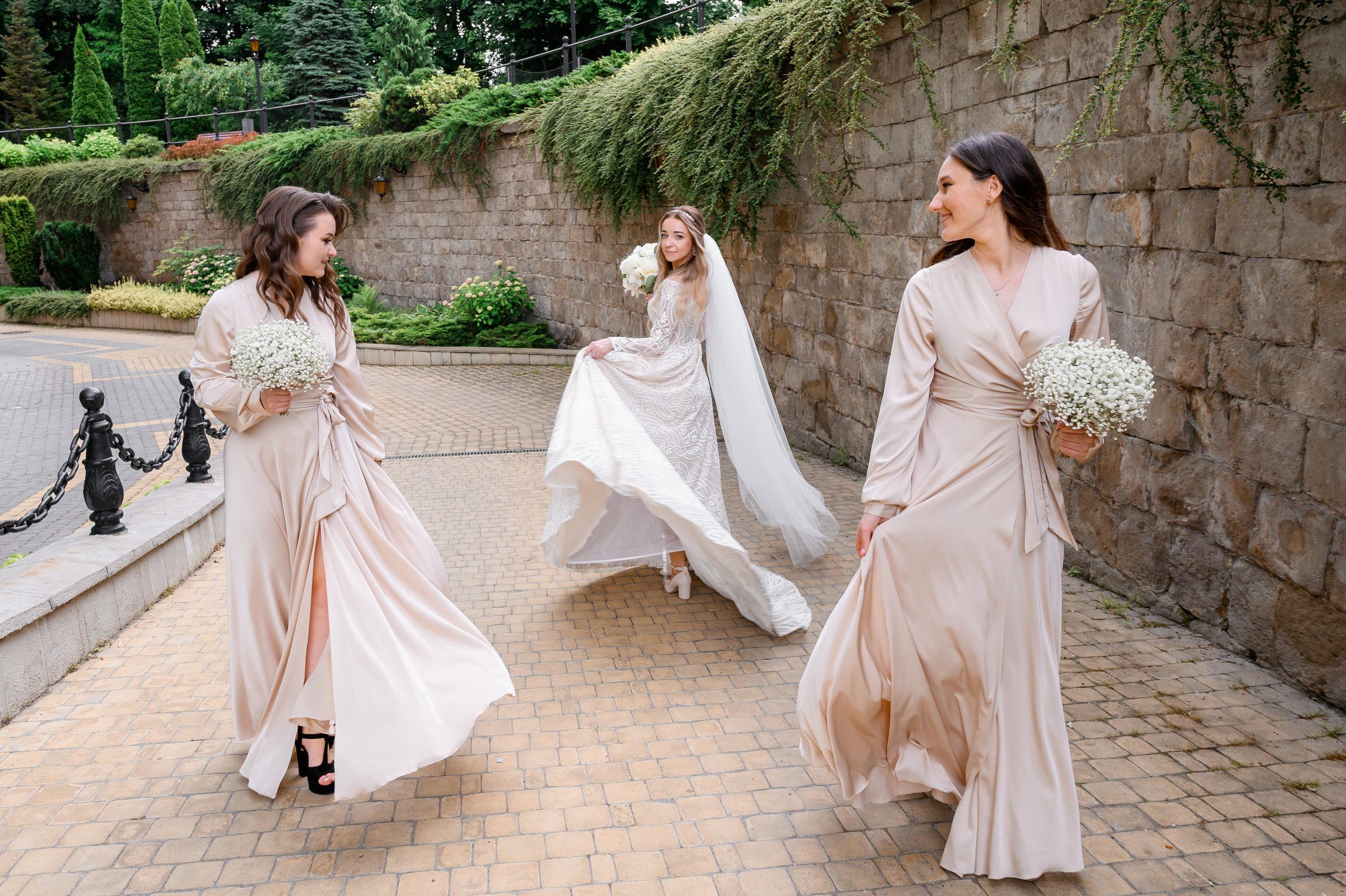White Versus Ivory Custom Wedding Dresses: What's the Difference?
White and ivory are two popular color options for wedding dresses, and while they may seem similar at first glance, there are distinct differences between the two. Let's delve into the details of the differences between white and ivory custom wedding dresses:
White Wedding Dresses:
Color Description: White is the purest and brightest shade on the color spectrum. It is often associated with purity, innocence, and new beginnings. White wedding dresses are traditionally chosen by brides who want a timeless and classic look.
Undertones: White wedding dresses typically have cool undertones, meaning they may have a slightly bluish hue. However, the specific undertone can vary depending on the fabric and the lighting in which the dress is viewed.
Effect on Skin Tone: White can make certain skin tones appear brighter and may work well for brides with cool or neutral undertones in their skin. It can also provide a stark contrast against darker skin tones, creating a striking visual impact.
Formality: White wedding dresses are often chosen for more formal and traditional weddings. The crisp and bright appearance of a white dress can lend an air of elegance and sophistication to the overall bridal look.
Photography: White dresses can photograph beautifully, especially in outdoor settings and under natural light. However, it's important to ensure that the dress doesn't appear too bright or overexposed in photographs.
Ivory Wedding Dresses:
Color Description: Ivory is a soft and warm shade that resembles the color of natural ivory, which is the tusks or teeth of animals. It exudes a sense of warmth, romance, and vintage charm. Ivory wedding dresses have gained popularity for their versatility and flattering nature.
Undertones: Ivory dresses often have warm undertones, leaning toward shades of yellow or cream. This can create a softer and more flattering effect against various skin tones.
Effect on Skin Tone: Ivory is known to be universally flattering and can complement a wide range of skin tones, from fair to deep. Its warm undertones tend to provide a soft glow that works well with most complexions.
Formality: Ivory wedding dresses can suit a variety of wedding styles, from casual to formal. They are often chosen by brides seeking a softer and more romantic look that's still elegant and refined.
Photography: Ivory dresses tend to photograph beautifully in a variety of settings and lighting conditions. The warm undertones of ivory can enhance skin tones and provide a softer overall look in photographs.
Choosing Between White and Ivory:
When choosing between a white and ivory wedding dress, consider the following factors:
Skin Tone: Consider how the color will interact with your skin tone. Ivory tends to be more forgiving and flattering across a wider range of complexions.
Wedding Theme: Think about the overall theme and style of your wedding. White may be more fitting for a formal and traditional wedding, while ivory can work well for various themes, including rustic, vintage, and romantic.
Personal Preference: Ultimately, your personal preference should guide your decision. Choose the color of your custom wedding dress that resonates with you and makes you feel the most beautiful and confident on your special day.
Fabric: Keep in mind that the choice of fabric can affect how the color appears. Some fabrics reflect light differently, which can influence the perceived color of the dress.
Both white and ivory wedding dresses have their own unique appeal, so take the time to try on dresses in both colors to see which one complements your vision and style the best.

